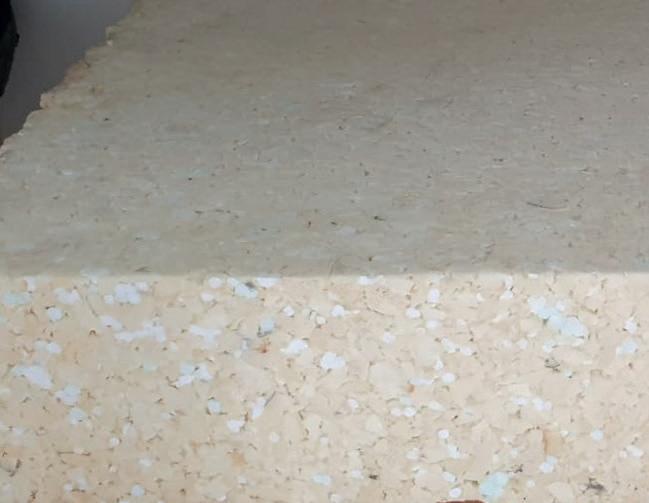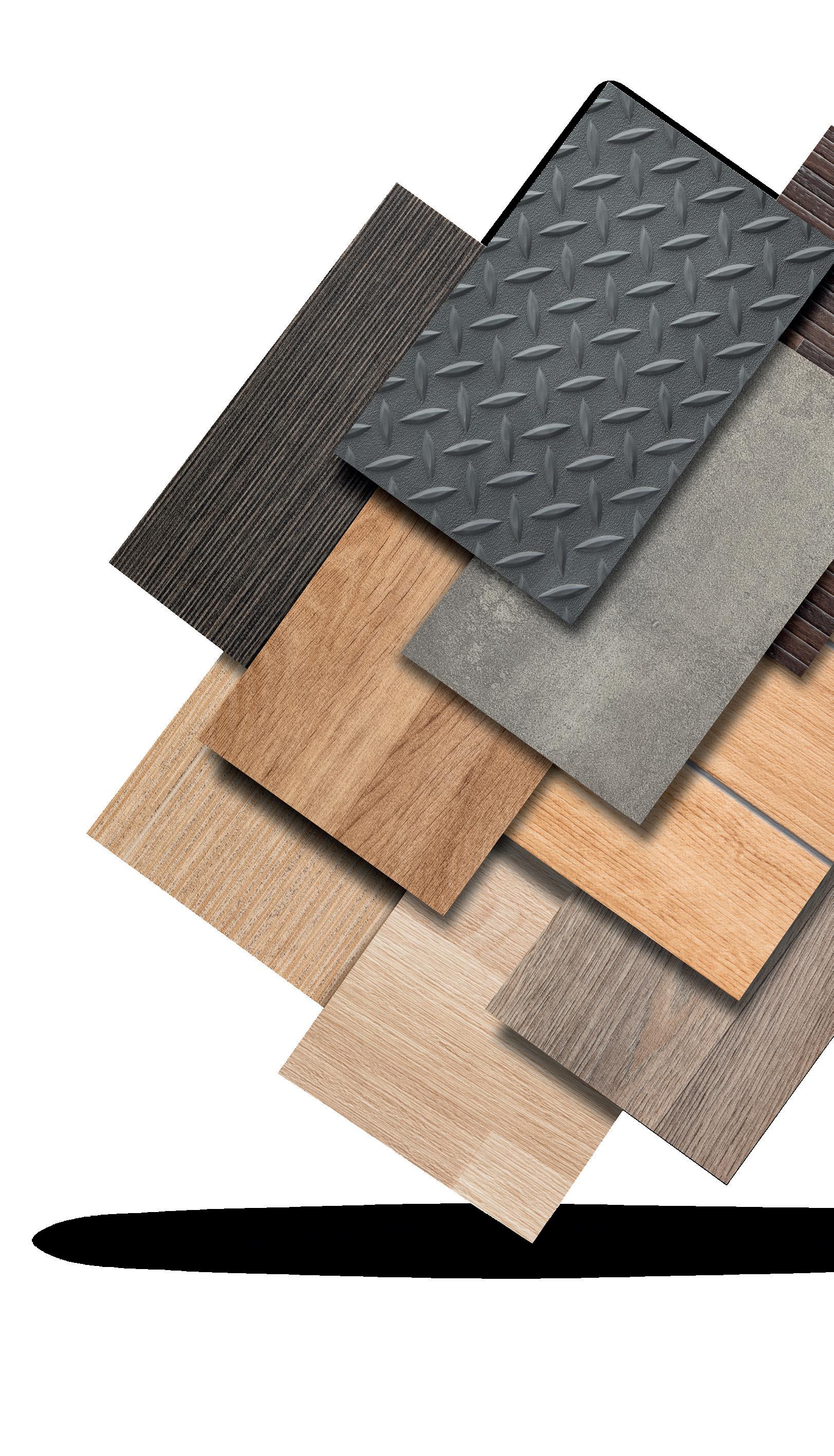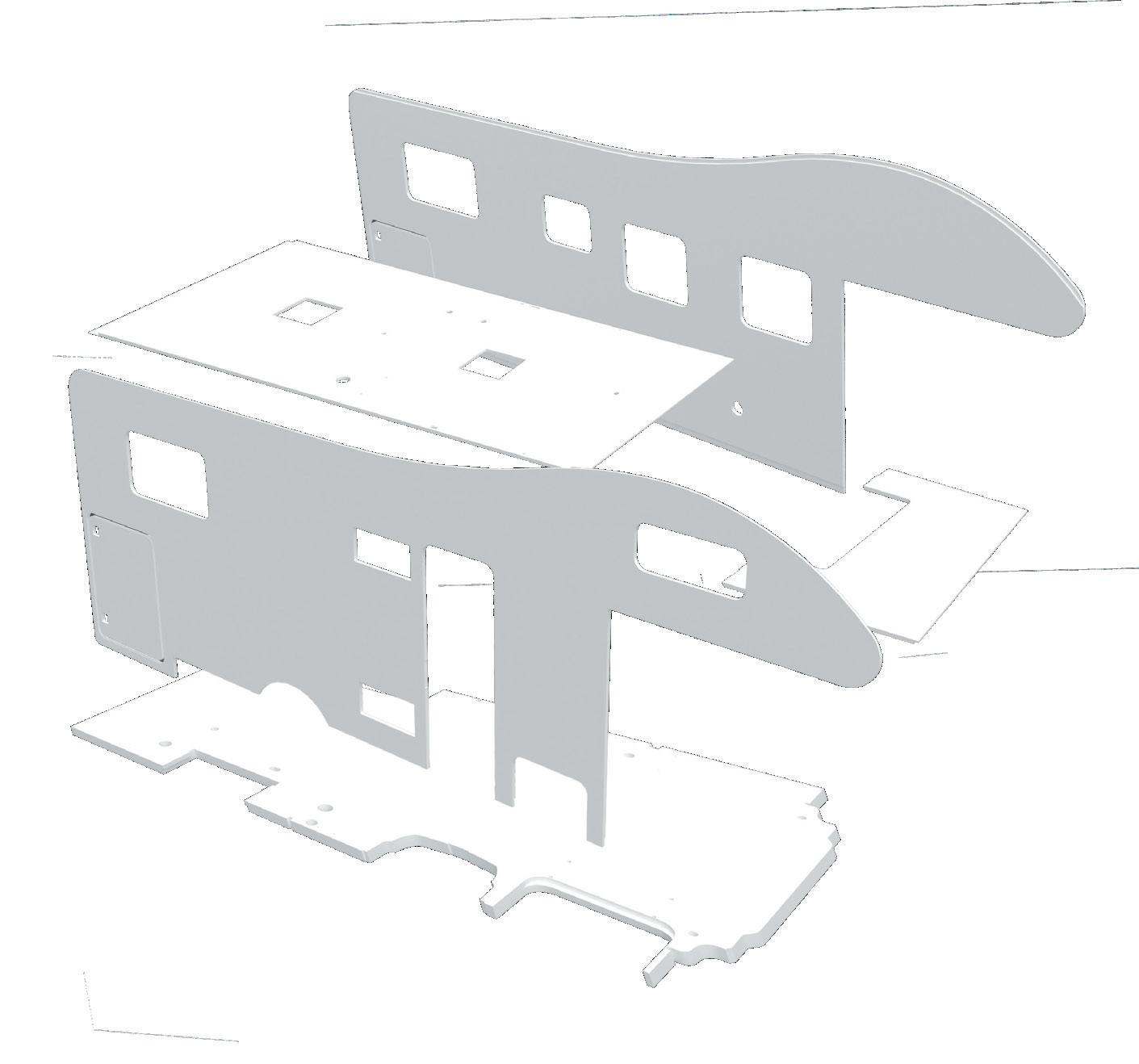
4 minute read
Palomar
Panels for passion since 2003

A new thermoplastic honeycomb with structural properties that is extremely light but also remarkably strong will be presented at the Caravan Salon for the first time
Words Renato Antonini
Step by step, Palomar is expressing a remarkable innovation drive in the sector of sandwich panels for bodywork constructions considered by many to be slow to change. There will be proof of this at the Caravan Salon in Düsseldorf, where Palomar will be presenting a new type of versatile structural material for use in RV construction in cooperation with AMA Composites. Innovative honeycomb or tubular structure elements made of thermoplastic material are shaped into sheets that can be cut and contoured to the desired dimensions. This material is used as the structural core of sandwich panels, laminated with fibreglass or plywood sheets. “The new thermoplastic polymer sheets are made of many tubular elements with a honeycomb or tubular cross-section joined together”, explained Roberto Bagni, one of Palomar’s owners and the company’s sales manager. “This material has already been successfully tested in various sectors, from automotive and aeronautics to railways and constructions. The new honeycomb polycarbonate is very light but also super strong. It is characterised by being extremely lightweight, but at the same time by offering great structural and impact resistance. It can be used for making various structural elements of RVs whether thermal insulation is needed or not. In collaboration with AMA Composites, we developed and patented an ingenious system that allows highly insulating Aerogel to be inserted into the honeycomb or tubular cavities during the production process, guaranteeing very significant levels of thermal insulation.”
Lightweight yet strong, the new material is made in different variants, with a density ranging from 48 kg/ m3 to 170 kg/m3. Roberto Bagni
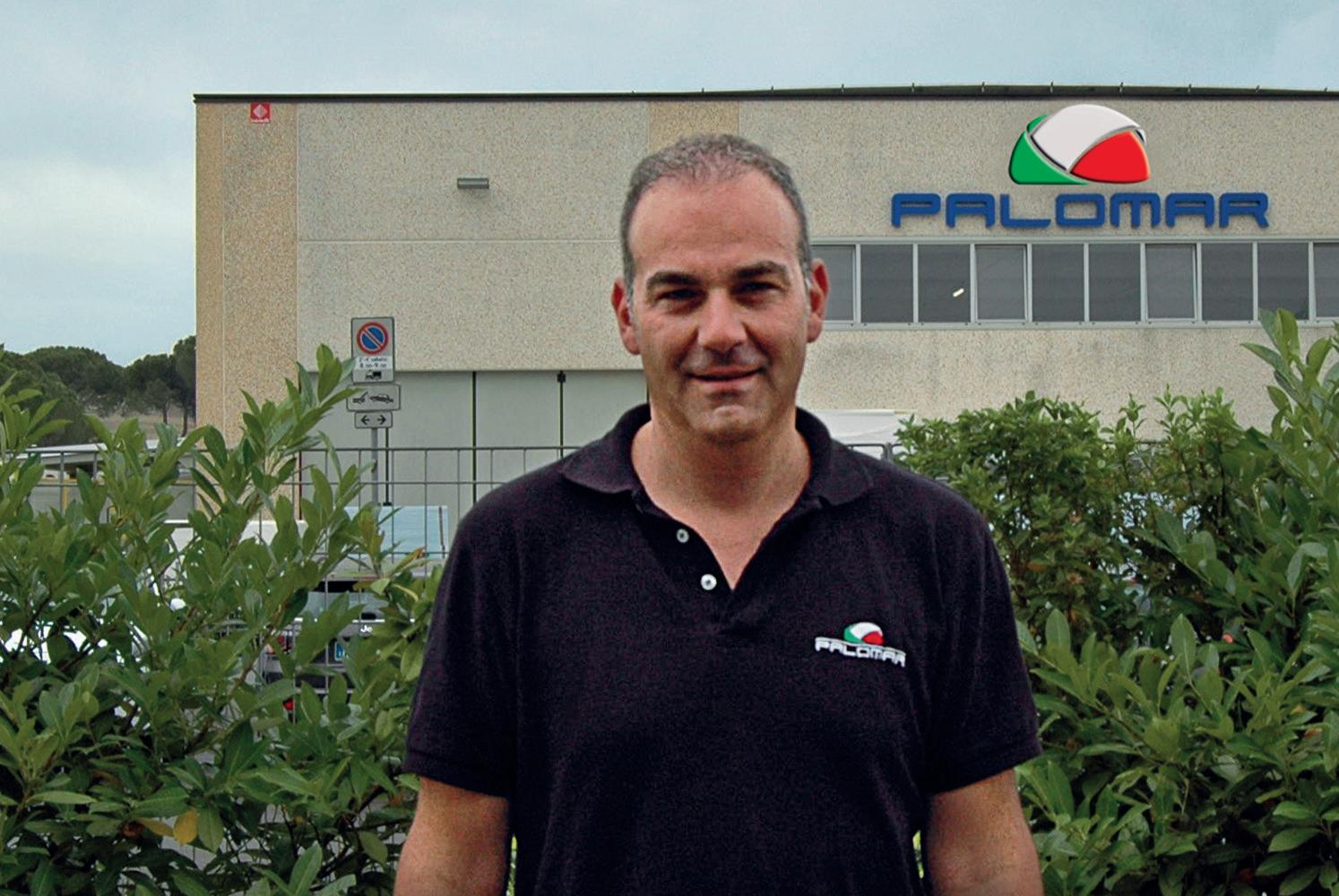
Flexible production made in Italy
Light & resistant honeycomb thermoplastic
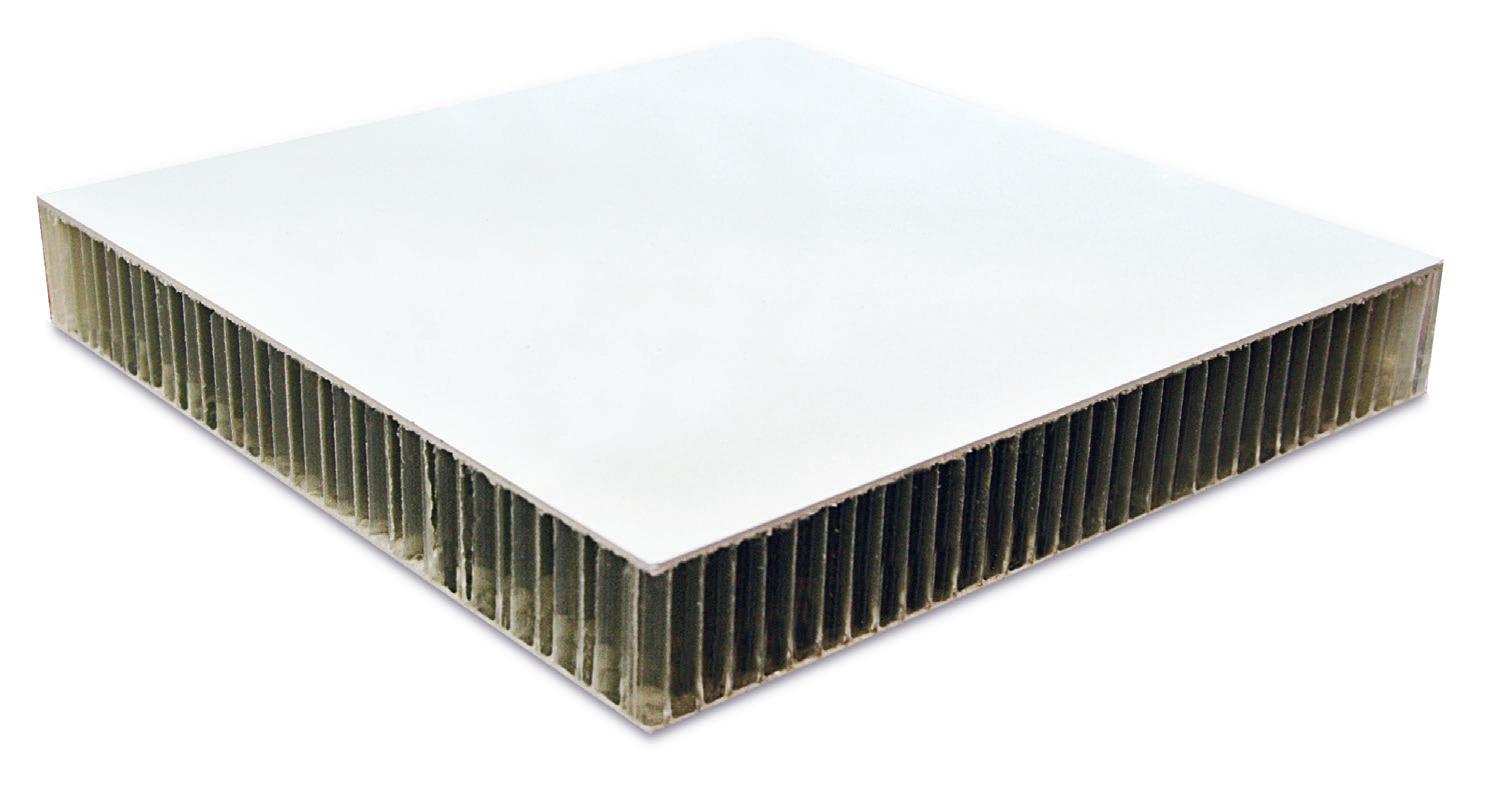
Other innovative solutions
The new thermoplastic honeycomb material is the latest innovation from Palomar but several other solutions offered by the Italian company over the last two years can still rightfully be described as new, like the heated floor and wall system. “We are introducing potential customers to the JESS heated floor and/ or wall system that we presented last year because we are convinced that it can be an excellent solution for increasing living comfort in RVs”, explained Roberto Bagni. This system can be used for the floors and/ or walls of a whole range of vehicles, without distinction. It is also possible to decide on which models activate it later on. This eliminates the additional costs deriving from extreme differentiation. With this system, the entire floor and/or wall of the vehicle can be heated. Alternatively, this solution can only be applied in some areas, e.g. the living area or the bathroom. The JESS heated floor/wall can be used on motorhomes, camper vans, caravans and mobile homes. Designed primarily for floors and walls, it can also be interestingly applied inside the roof panel. The JESS heated floor uses a membrane consisting of a heat-conducting element produced by Ama Composites, laminated to one or more reinforcements and protected by a polyester protective film. The membrane is heated by passing 12V electricity through it and, in turn, heats the floor. Today Palomar can now recycle all of the waste resulting from the processing of large sandwich walls and can reintroduce recycled high-density polyurethane sheets into its production process: EcoSlab was born. Through this new recovery process, small and large cuts of material, such as doors and windows are returned into circulation instead which of being thrown away. The polyurethane recycling process introduced by Palomar is the result of a partnership with an Italian company specialising in the recovery of large quantities of waste materials from industrial production. Palomar sends the waste to the recycling centre, where the polyurethane is separated from the metals, ground in an isocyanate-based process and compacted into calibrated sheets of various thicknesses and sizes, having densities ranging from 30-35 to 250 kg. This material is unquestionably superior performance to polystyrene foam and, in our case, has green added value. The sheets are 40, 80 and 120 mm thick and are not limited to new applications. They can be reused to produce numerous interior parts, including doors, front ends, overcab floors and garage floors. On demand, the recycled material can also be used to make the floors of the living pod itself.

White, red and green are the three colours of Palomar’s restyled logo that you can see here above. The four stylised sails of the previous logo are reduced to three. Three and white, red and green like the colours of the Italian flag to reassert that Palomar is an Italian company and an expression of quintessentially Italian industriousness, creativity and flexibility. To better cope with the growing market demands, a second production site was opened not far from the existing one in the Italian RV manufacturing district in Tuscany in 2020. “With our increased production capacity, we have started producing sandwich panels for isothermal cells to be installed on light commercial vehicles”, said Roberto Bagni. “We were with this new product at the IAA in Hannover, the international trade fair for commercial vehicles. However, the RV sector remains the priority and is our core business. We are trying to expand our reach throughout Europe and we have recently exported sandwich panels to South Korea as well.”
Left and below: EcoSlab, a high-quality, high-performance sandwich panel virtuously made by recycling the company’s own waste materials

